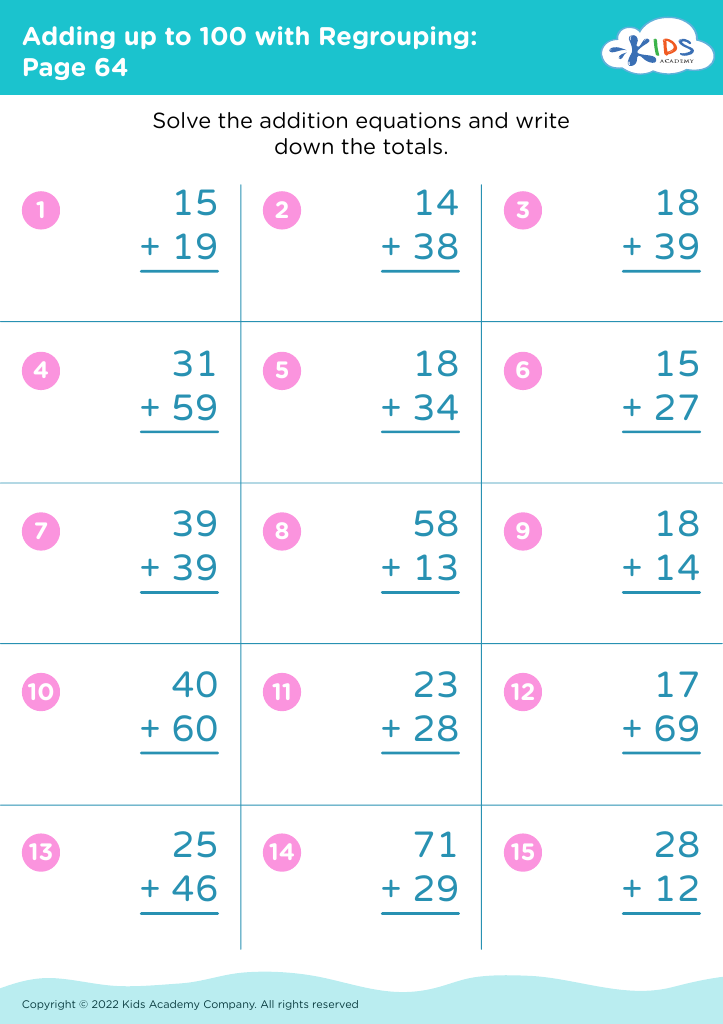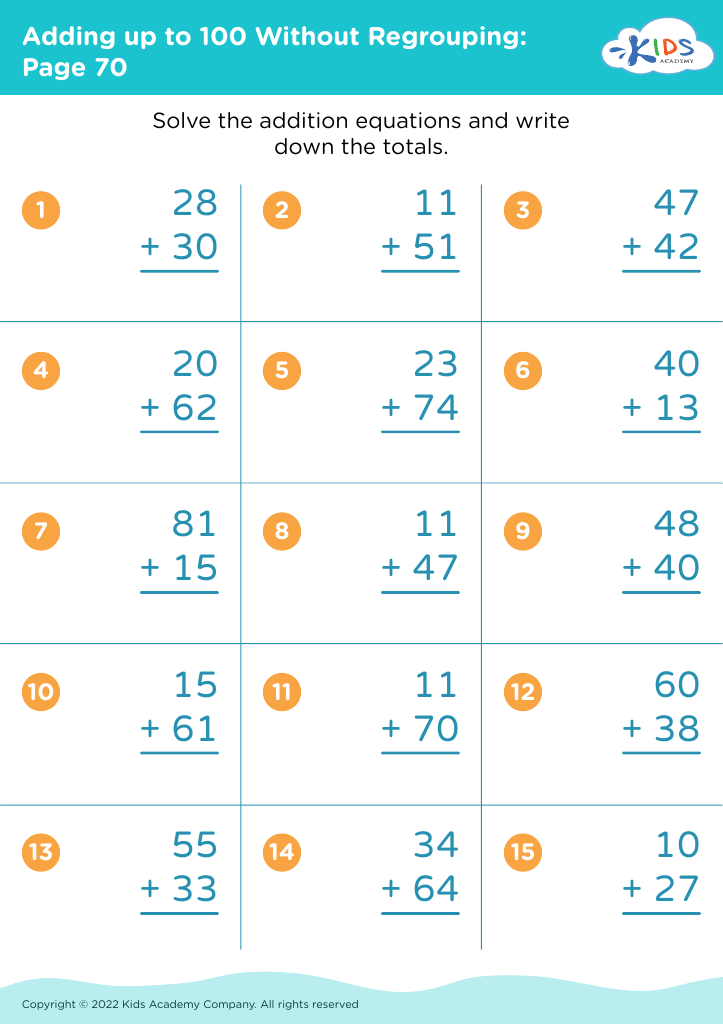Reinforce math concepts Math Worksheets for Ages 8-9
3 filtered results
-
From - To
Explore our engaging "Reinforce Math Concepts" worksheets designed for children ages 8-9! These carefully crafted materials cover essential math skills that solidify foundational concepts, making learning both fun and effective. With a variety of exercises, including addition, subtraction, multiplication, and problem-solving, children will enhance their skills while building confidence. Each worksheet caters to different learning styles, ensuring that every child can grasp critical math concepts. Let your young learners practice independently or enjoy collaborative learning at home or in the classroom. Access our dynamic worksheets and watch your child's math abilities flourish as they tackle challenges with enthusiasm!
Reinforcing math concepts for children aged 8-9 is crucial for several reasons. At this developmental stage, children are transitioning from basic arithmetic to more complex mathematical ideas, including fractions, multiplication, and division. This foundational understanding is vital, as mathematics builds upon itself. If students struggle to grasp these concepts early on, they may face significant barriers to learning more advanced topics later.
Moreover, a strong math foundation enhances critical thinking and problem-solving skills, which are essential not just in academics but in everyday life. Reinforcing concepts helps solidify their understanding, boosting confidence and fostering a positive attitude toward math. Children who receive consistent support and reinforcement are more likely to embrace challenges and develop resilience.
Teachers and parents must also recognize that children learn in diverse ways. Engaging activities, games, and real-world applications can make math more relatable and enjoyable, sparking interest and encouraging questioning. Continuous reinforcement from both home and school creates a collaborative learning environment, ensuring children feel supported and recognized for their efforts. Ultimately, prioritizing the reinforcement of math concepts at this age sets the stage for future academic success, lifelong learning, and essential skills.




















